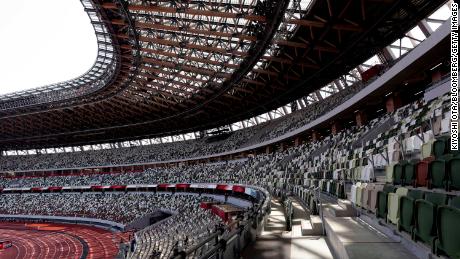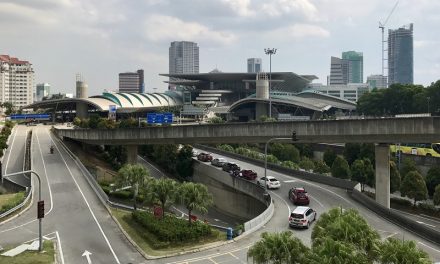Health DG: Covid-19 infectivity rate still above 1.0 for two-thirds of Malaysia
The Covid-19 infectivity rate (Rt) remains above 1.0 for two-thirds of the nation, says Tan Sri Dr Noor Hisham Abdullah. Based on the number of daily cases, the Health director-general said the infectivity rate for the country is expected to reach 1.09 with only four states recording below 1.0. Putrajaya recorded the highest Rt value at 1.28. “States expected to record Rt above 1.0 are Perak (1.18), Kuala Lumpur (1.16), Selangor (1.14), Pahang (1.10), Kedah (1.08), Sabah and Penang (1.07), Melaka (1.06), Terengganu (1.04) as well as Negri Sembilan (1.02),” he said. The nation saw a record number of Covid-19 deaths per day on Thursday with 135 fatalities, surpassing the previous record on June 2 with 126 deaths. The country also saw the second-highest number of daily infections with 8,868 cases on Thursday. The highest daily figure was 9,020 cases on May 29. (The Star)
Health minister says rolling out new Covid-19 strategy for Klang Valley as cases remain high
The Ministry of Health (MoH) will implement a new strategy to address the persistently high Covid-19 cases reported daily in the Klang Valley, said Datuk Seri Dr Adham Baba. The health minister said the MoH will take 10 immediate steps to strengthen Covid-19 preparedness for the Klang Valley, with some of the efforts being focused on supporting on proper treatment of patients at the Integrated Covid-19 Quarantine and Treatment Centre (PKRC) 2.0 at the Malaysian Agro Exposition Park Serdang (MAEPS). These initiatives include adding more beds to the intensive care units at the ministry’s hospitals; establishing a field hospital at HTAR; transferring 110 public health workers the Klang Valley; and increasing the supply of oxygen tanks. He said the MoH would also prepare a volunteer workforce, especially the Malaysian Red Crescent Society (MRCS). Selangor and Kuala Lumpur have been seeing an increasing trend of Covid-19 cases even with the implementation of the movement control order (MCO 3.0) in June , according to MoH’s data. (Malay Mail)
Knight Frank: Industrial and logistic sectors to continue performing well
Real estate investors have strong convictions on the industrial and logistic sector which they anticipate will continue to perform well under the current economic climate, according to the Malaysia Commercial Real Estate Investment Sentiment Survey (CREISS) 2021 survey report by Knight Frank Malaysia. The report revealed that key players in the commercial property industry are generally optimistic on the logistics, healthcare and industrial property segments but remain cautious on the traditional retail and office segments, as well as on the hotel and leisure industry. The survey also highlighted that the ecosystem for industrial and logistics is in unison as developers and fund or REIT managers’ appetite for investments into the industrial or logistics sector are harmoniously complemented by lenders who are also expressing higher interest in funding these projects or assets. The survey findings revealed that there are more factors negatively impacting investment in the commercial property sector in 2021. The top three non-favourable factors (over 70% of respondents) were the third-wave of the novel coronavirus outbreak, the current state of economy, government policies and cancellation of the HSR project. The other unfavourable factors were compression of yield and lower returns and slow COVID-19 vaccination. (The Edge)
Report: South-East Asia is world’s fastest-growing mobile wallet market
South-East Asia is the world’s fastest-growing region for mobile wallets, followed by Latin America and Africa & Middle East, research from London-based fintech company Boku Inc shows. The number of mobile wallets in use will grow 311% from 2020 to almost 440 million by 2025 across Indonesia, Malaysia, the Philippines, Singapore, Thailand and Vietnam, reflecting an e-commerce boom. The usage in Latin America is set to expand 166% during the same period, while that in Africa and Middle East will grow 147%. The study found there are two distinct types of mobile wallets in the world. One is card-based mobile wallets like Apple Pay and Google Pay, which are more popular in developed markets. The other is stored value mobile wallets like China’s AliPay and Grab Holding Inc’s GrabPay, popular in emerging markets where credit-card usage is lower. In 2020, there were 55 stored value mobile wallets that processed more than US$1bil (RM4.18bil) in annual transactions. Pakistan’s SadaPay is projected to be the fastest-growing mobile wallet in the world in the five years to 2025, followed by Mercado Pago and PicPay in Brazil. Chinese wallets are likely to have limited impact outside their home market, the study said. (The Star)
Tokyo bans Olympic spectators amid Covid-19 emergency
The Olympics will take place without spectators in host city Tokyo, organisers said on Thursday (July 8), as a resurgent coronavirus forced Japan to declare a state of emergency in the capital that will run throughout the Games. The move marked a sharp turnabout from as recently as last week, when some officials were still insisting they could organise the Games safely with some fans. It all but strips the global sporting showpiece, which is due to start on July 23 and run until Aug 8, of its last vestiges of pomp and public spectacle. Prime Minister Yoshihide Suga said it was essential to prevent Tokyo, where the highly contagious Delta variant of Covid-19 variant was spreading, from becoming a flashpoint of new infections. The Games were postponed last year due to the pandemic and have been hit by massive budget overruns. Much of Japan’s population is still not vaccinated against Covid-19, stoking fears that an influx of thousands of athletes and officials will fuel more infections. Organisers were still uncertain how much revenue would be lost due to the absence of spectators, Tokyo 2020 CEO Toshiro Muto said, adding they were looking to further cut staff. (The Star)






